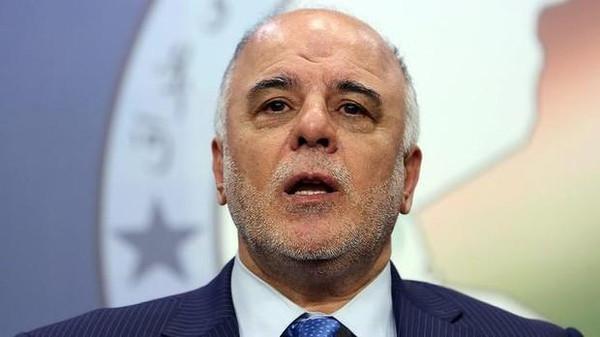President Trump is scheduled to host Iraq’s Prime Minister at the White House on Monday. His Excellency Haider al-Abadi will meet the President and discuss Iraq’s future over different sectors. As the Prime Minister left for the United States on Sunday evening, he told the press that Iraqi troops in conjunction with the US forces were about to finally rid the country of ISIS. Further, he said that he would engage the US in talks as to how the state would proceed with the final stages of eliminating the terrorist group. “We are in the last chapter, the final stages to eliminate ISIS militarily in Iraq,” he said in a video statement.
Additionally, the Prime Minister explained that Iraq was under a financial crisis as a result of the destruction from fighting ISIS. As such, he hoped that the United States would continue assisting the country to achieve financial stability.
Just last week, Trump announced a $54 billion increase in the country’s defense budget. The additional funding would have more than $3 billion going towards combatting ISIS. Also, a $2 billion flexible allocation would be made to the Pentagon, who would then decide how best to use the funding in their strategy to fight the terrorist group.
Apart from economic assistance, the meeting of the two leaders could touch on some issues that have been subjects of disagreement in the past. In President Trump’s executive order about immigration, Iraq citizens were some of the people barred from traveling to the United States. However, intense lobbying from the Iraqi government had the revised version of the travel ban exclude Iraq from the list of Muslim-majority countries.
The discussions between Iraq and the US included a phone call between Trump and al-Abadi on February 10th as well as personal face to face talks between the Prime Minister and Vice President Mike Pence on February 18th in Munich. Additionally, Secretary of State Rex Tillerson had discussions with some of Iraq’s government officials over the procedures Iraq would take to ensure no suspected terrorists can make their way to the US. The US provided new vetting measures to be included in Iraq’s migration policies. However, Iraq did not implement the new measures. Instead, officials gave more information to the United States as to the screening process the Iraqi government used on each traveler.
Another point of concern could be Iraq’s oil reserves. In the past, President Trump has expressed a disagreement with the decision the United States made to leave the oil in the custody of Iraq’s government after the US invaded the country. Trump said, “We should have kept the oil when we got out. And you know, it’s very interesting. Had we taken the oil, you wouldn’t have ISIS, because they fuel themselves with the oil. That’s where they got the money.”
The President’s statement in the past could cause tension between the two countries. However, US Defense Secretary James Mattis told reporters that US forces were not back in Iraq to seize control of the country’s oil reserves. He went on to say, “All of us in America have generally paid for our gas and oil all along, and I’m sure that we will continue to do so in the future.”




